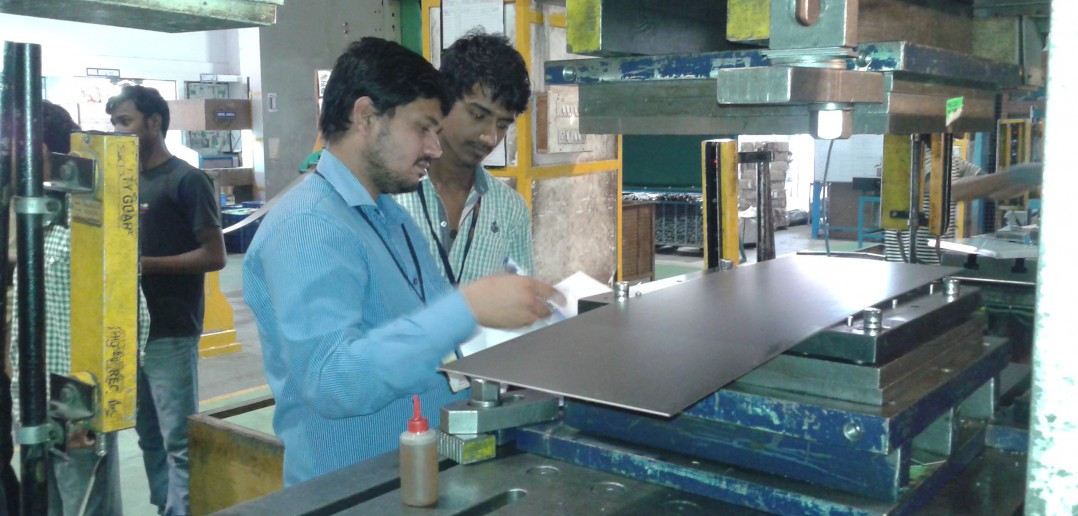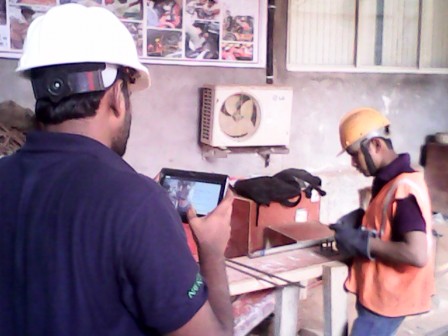Assessments are crucial in evaluating knowledge and assessing skills to perform on the job. This Skill Story by T.Mahesh , CEO and Co-Founder, Navriti Technologies Pvt Ltd, tells us how his team successfully meets the challenges of volumes, scale and diversity of skill development projects in India through technology and tools for assessment administration and management. Let’s know more about how the assessment bodies work with the training partners, industry sectors and the government to accelerate certification and employability.
Making the assessment strategy work
The assessment framework for skill development and vocational training is undergoing a rapid change since we are moving MES (Modular Employable Skills) which was based on competency based curriculum, to NSQF, which follows international standards on skilling. Training and assessments are conducted on the same curriculum, just like how we have board exams in schools.

Whether it is a corporate client or a government client, when we sign up as an assessment body, we inform them about our procedures and SOPs. This includes the four critical components – creation of questions, empanelling the assessors, conducting the assessment and declaring the results. All assessment have theory and practical components. There’s no negative marking as it’s only about knowing how good you are! Most of the government projects have a monitoring team like for PMKVY, the audit team is always on the move. They validate our claims and if there’s an inconsistency, they ask us for an explanation. So there’s a check on the assessing body to maintain quality, consistency and transparency.
The role of third-party assessment bodies
We are empanelled as assessors by NSDC and recognized by industry sectors. Earlier, training partners and corporates used to conduct their own assessments. The role of external, third-party became prominent as they had to meet training targets with compliance for certification. For example, all Project Implementation Agencies (PIAs), that are actually training companies, get a third-party certified assessor to carry out the assessments after the training. However under the PMKVY scheme, they have to tell us when the training batch is getting ready for assessment, then the Sector Skill Council (SSC) chooses the empanelled assessment body. Then we work closely with the training partner and conduct the assessments.
Efficiency through technology enabled assessments
We started by developing technology solutions for project management in the domain of assessments. Our objective was to move quickly from paper based assessments to digital ways of assessment administration through mobile phones, tablets, laptops and desktops. Hence, we developed tools that could cut down on entire assessment cycle. Certiplate, our cloud based assessment platform, can facilitate assessment of workers on a variety of handheld devices. All they need to do is click or tick an answer. Certiplate is designed for a wide range of assessments like diagnostic, summative, and Recognition or Prior Learning (RPL) for certifying skilling and upskilling.

There’s always a pressure in declaring the results as soon as the assessments are done. Earlier, it used to take several days to declare the results, with Certiplate, many of the logistical problems are solved and the results are available immediately after the tests. This is a big boon for training providers, since they depend on the training results to complete the training cycle and for the trainees who are always eager to know their results.
Authentication, tracking and proctoring
Along with administration of tests, Certiplate makes the process transparent by bringing in accountability with scope for analysis and management. For authentication and integrity, there’s a simple self-declaration with the trainee’s photograph. Tracking is done through geo-stamping and time-stamping. To avoid any malpractices by accessing the internet during the tests, our tools work in an offline mode. The assessor can download the assessment and conduct it offline and then sync the result with the server. For tests in media, entertainment and electronics, we give them circuit boards, simulations that are administered on a desktop. We are now doing a pilot in auto-proctoring to enable close monitoring and detect malpractices. As soon as the exam starts all the applications and websites are locked.
We also enable assisted assessments by reading out the questions using a show-and-tell technique. For practical tests, they perform the task, like stitching part of the garment. If it is in beauty and wellness, about manicure, we ask them to demonstrate. Our facilitator works closely with the assessor. Sometimes, we are challenged by the remote locations and limited means to access and meet the timelines.
Impact of assessments on employability and productivity
Assessments and certification bring social recognition. You walk into a leather or rubber factory, people would have been working there for ages but they are treated as unskilled and school dropouts. Even though they will be skilled in making many products, the wages are kept low, now, because of the qualification recognized by the government, it brings them respect and recognition in the community. Because of this, people are coming forward to get trained and certified.
The best way to demonstrate training investment is through productivity analysis. We have to assure that the certification assures minimum quality – basics, process, waste reduction etc for a particular industry. The next level is to meet unique or specific requirements for a particular company in the industry sector, for example Tata Motors may have their own requirements and standards in auto industry. Another possibility is to combine certification and licensing like we do for Chartered Accountants. This may make it aspirational but unless it is driven by the industry, it will not surge in
We are working with 13 SSCs. We are bullish about assessments because the vision for Make In India cannot be realized without Skill India. Going ahead, assessment bodies will definitely play a more significant role in the evolving skill development ecosystem in India!













Impact of assessments on employability and productivity.